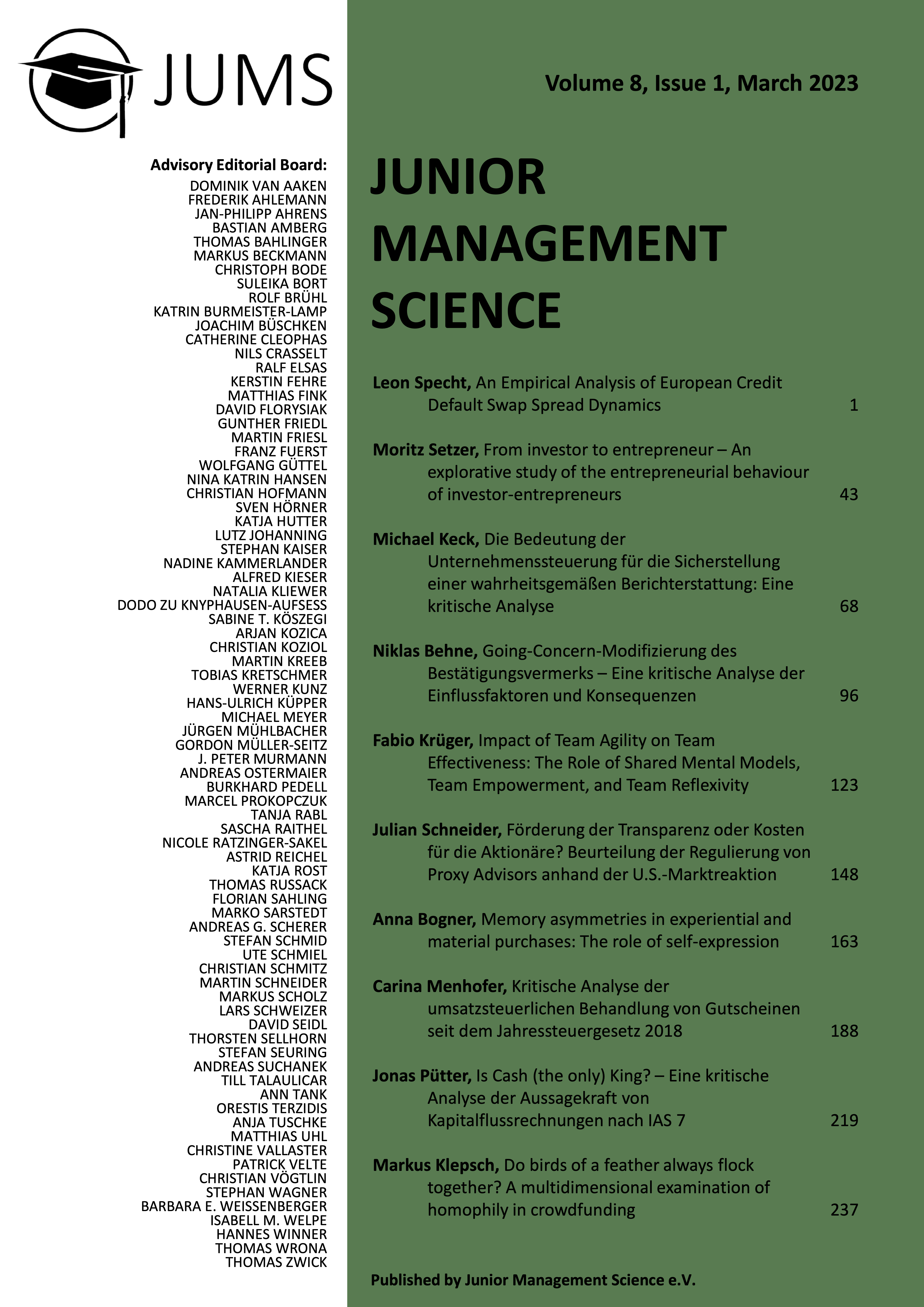Abstract
To date many studies have investigated the different potentials of material and experiential purchases on making consumers happy. There is a strong recommendation to prefer experiential purchases when seeking happiness, the so called “experiential advantage”. But do experiences always make people happier as compared to material purchases? This study proposes a memory asymmetry in experiential and material purchases as a main antecedent of reported consumer happiness in favor of experiential purchases. Employing a mixed online experiment, especially the role of self-expression in that context was investigated. Germanspeaking respondents indicated that when equally self-expressive, both material and experiential purchases can contribute to their happiness in the same degree. Nevertheless, an interesting finding was that there is a significant preference to use experiential purchases for conveying a person’s true self to someone else. The heavier use of self-expressive purchases in socialization can explain why it is easier to recall self-expressive experiential than self-expressive material purchases. This memory asymmetry results in self-expressive experiential purchases being more frequently recalled than self-expressive material purchases when asked to intuitively recall a purchase that has contributed to one’s happiness. Thus, that might be a reason why scholars have observed the “experiential advantage”. The results are discussed as well as their meaning for different areas. Finally, recommendations for future research are offered.
Keywords: Material possessions; experiential advantage; memory asymmetry; happiness; self-expression.

Dieses Werk steht unter der Lizenz Creative Commons Namensnennung 4.0 International.

